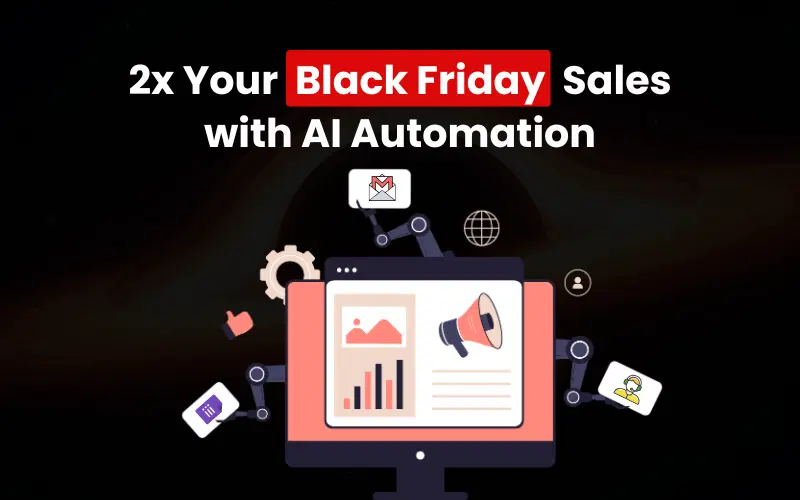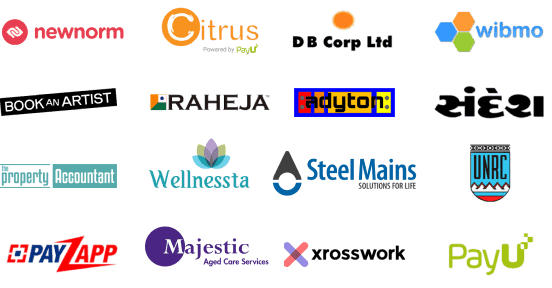In our digital world, being smarter, not harder, is key. Marketers need cutting-edge strategies to engage customers and spin leads into gold, and AI-driven marketing automation is proving to be worth its weight. It jazzes up conversion funnels by using smart tech to smooth workflows, make sense of data, and deliver personalized experiences on a grand scale.
We’ll walk you through the nuts and bolts of AI-driven marketing automation funnels. This means unpacking terms like conversion funnels AI, predictive marketing, lead scoring automation, and AI-driven customer journeys. With tales of real business triumphs, this guide is here to help CTOs, product managers, and agencies make sense of and take advantage of these cool tools.
Understanding AI-Driven Marketing Automation
What Is AI-Driven Marketing Automation?
This techy stuff involves machine learning and AI to tackle the dull repetitive marketing tasks. These are things like splitting audiences into neat segments, scoring leads, zipping out follow-up emails, and tailoring website content based on what users are doing. Unlike traditional setups that stick to one way of doing things, AI learns from both past and present data to keep campaigns fresh and on-point.
This not only cuts down on manual efforts but tweaks targeting and timing to perfection, efficiently delivering messages that hit home.
Key Components of AI Marketing Funnels
- Conversion Funnels AI: This takes every stage of the classic funnel—awareness, consideration, decision—and lets AI sprinkle its magic to suggest next steps and tweak content, nudging potential buyers along.
- Predictive Marketing: Checks out data trends to guess which prospects are hot leads, making outreach precise rather than broad and aimless.
- Lead Scoring Automation: Automatically ranks leads based on how they interact and their stats, helping sales zero in where it matters most.
- AI Customer Journeys: Creates personalized pathways that shift in real-time as customers interact, focusing on keeping them engaged and moving through the funnel.
Real-World Insights: Case Studies and Use Cases
Case Study: SaaS Company Boosts Conversion by 40%
A SaaS startup decided to jump onto the AI marketing bandwagon and supercharge their email campaigns and conversion funnels. Using AI-powered lead scoring, they tracked down high-potential trial users and crafted personalized journeys to nurture these leads. In just half a year, their conversion rates shot up by 40%, and costs slid down by 25%.
This came from combining sharp conversion funnels AI with predictive marketing models that picked up on user actions like digging into new features, logging on frequently, and hitting up support.
Use Case: E-Commerce Brand Personalizes Customer Journeys
An online store revamped its approach using AI-powered customer journeys, dynamically split customers based on browsing patterns, purchase histories, and cart abandonments. The system automatically tweaked how often messages were sent, what products were pushed forward, and when discounts were offered. This caused a 15% hike in average order value and an impressive upswing in repeat buys.
How Agencies Benefit from AI Marketing Automation Platforms
Handling multiple clients means agencies are always on the lookout for efficient ways to customize solutions without lengthening timelines. AI marketing automation platforms, especially those with options to customize for clients, streamline this by automating scoring and predicting markets, cutting down on busywork to free up time for growth strategies.
Step-by-Step Guide to Implementing AI-Driven Marketing Automation
Step 1: Define Clear Objectives and KPIs
First things first, setting clear goals. Do you want more leads, or maybe better ones, or just a faster sales cycle? Knowing what success looks like helps you aim for it and track progress with KPIs like conversion rates, cost per lead, or customer lifetime value.
Step 2: Choose the Right Platform
Think about what's what with your tech stack, budget, and feature needs. A platform with strong AI chops for conversion funnels and lead scoring matters. Try out demos, spy on user reviews, and really look into their support.
Step 3: Collect and Clean Your Data
AI thrives on good data. So, check all your data sources to make sure everything's up to date and accurate. Trim out the old or double-up records and gather everything in one spot for seamless AI analysis.
Step 4: Build and Train AI Models
Once your data's in tip-top shape, you can start teaching your AI model how to predict marketing trends and score leads. Begin simple—figure out what makes leads open emails—then tweak as more results come in. Many packages have models ready to rollout.
Step 5: Design AI Customer Journeys
Set up automated workflows that change according to customer actions. Like sending special offers when users ditch their carts or re-engagement emails for those who've gone quiet. Experiment with A/B tests to get timing and messaging just right.
Step 6: Monitor, Analyze, and Optimize
Keep an eye on how campaigns are doing. AI helps pinpoint which segments are blockbusters or which messaging causes drop-offs. Use these hints to adjust your funnels and enhance outcomes over time.
Ensuring Data Privacy and Compliance
Your customers gotta trust you. Ensure the AI marketing automation platform you choose sticks to rules like GDPR, CCPA, and other data protection guidelines to safeguard user data. Use access controls and encryption to protect sensitive info. Following the rules not only keeps you out of trouble but also builds confidence with your customers.
Measuring Success: Metrics That Matter
Keep tabs on these metrics for a clear view of AI's impact:
- Conversion Rate: Watch the percentage of leads moving through your upgraded funnels and taking action.
- Lead Quality: Look for improvements in scoring precision and better-targeted follow-ups.
- Customer Engagement: Metrics like email open rates, click-through rates, and time on site—these show that your personalization efforts pay off.
- Return on Investment: Stack up campaign costs before and after AI kicks in to see the value added.
Author’s Credentials and Industry Authority
I’m Avkash Kakdiya, a content guru with a passion for AI and marketing magic. I've spent years working alongside SaaS firms, agencies, and product teams, offering advice to help decision-makers adopt cutting-edge AI solutions. I keep my finger on the pulse of industry trends and partner with top AI providers to ensure my insights are both practical and spot-on.
Summary and Next Steps
AI-driven marketing automation isn't some sci-fi fantasy—it's essential for businesses looking to optimize their funnels and customer relationships. It's already enabled companies to fine-tune targeting, hone personalized messaging, and maximize time efficiency through smart automation. Companies that use these tools alongside a well-thought strategy with clean data see massive boosts in conversions.
If you’re scouting platforms as a CTO, exploring new kick-starters as a product manager, or weighing white-label options as an agency, begin by setting your goals and tidying up your data. Choose a platform known for its AI expertise in conversion funnels, predictive marketing, and lead scoring automation to maximize the chances of success.
Eager to see how AI marketing automation can boost your conversion rates? Consider exploring free demos or consultations with leading solution providers today for a tailored fit to meet your business needs.






